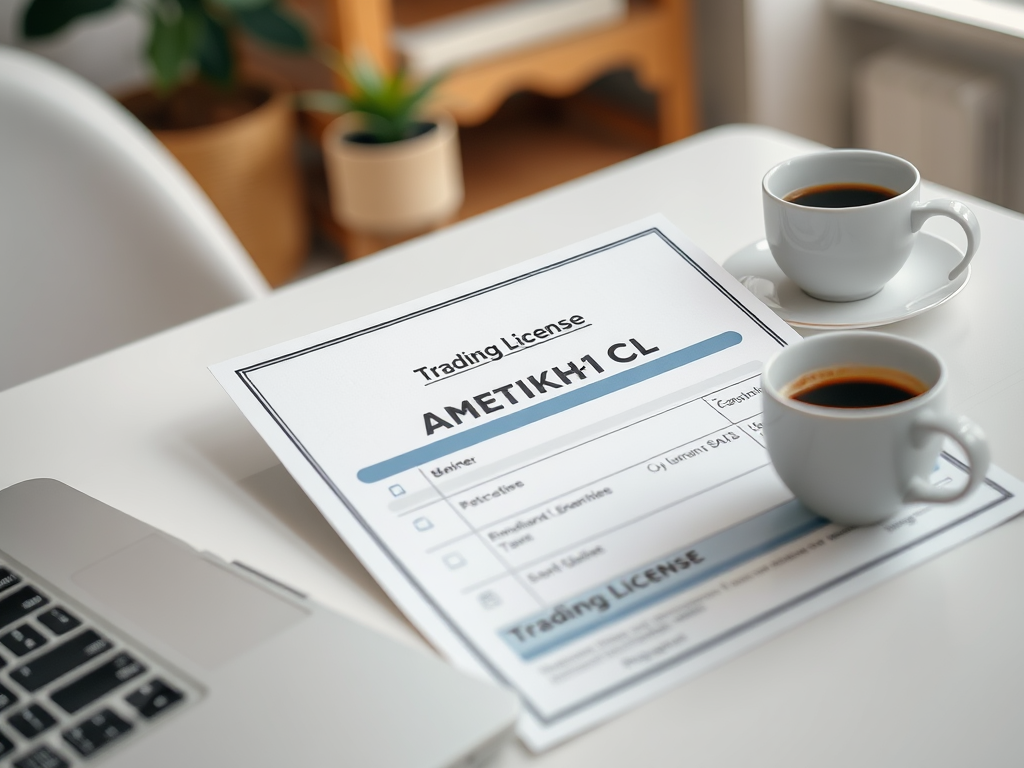Setting up a business in Dubai offers a gateway to one of the most lucrative markets in the Middle East. However, to capitalize on this opportunity, entrepreneurs must navigate the complex terrain of regulatory requirements. Among the most critical steps to ensure smooth business operations in this vibrant city is obtaining a trading license. This essential document not only protects you legally but also enhances your business credibility and opens the door to lucrative markets. In the bustling atmosphere of Dubai’s economic landscape, failing to secure a trading license could jeopardize your business operations. Here’s an in-depth look at why having a trading license in Dubai is non-negotiable.
Understanding the Basics of Dubai’s Trading License

A trading license in Dubai comes in several forms, each catering to different types of business activities. The primary types of licenses include a commercial license for trading and distribution, a professional license for service providers, and an industrial license for manufacturing. Each license has specific requirements and implications, shaping the scope of operations you can undertake. For example, a commercial license permits trading in goods, while a professional license is crucial for consultants and freelancers. This multifaceted approach ensures that businesses function within the legal framework laid down by the Dubai authorities. Understanding these distinctions is crucial to selecting the correct license for your venture.
Legal Compliance and Regulatory Framework

Compliance is the backbone of any business operation. In Dubai, the Department of Economic Development (DED) oversees business activities, ensuring adherence to the law. Operating without a trading license can lead to significant penalties and legal issues that could halt your operations. Moreover, being entrenched in legality boosts your reputation, attracting both customers and investors. It’s not just about waving a piece of paper; it’s about establishing your business as a credible and trustworthy entity in the competitive marketplace. Thus, understanding the regulatory landscape is crucial for long-term success.
- Prevents Legal Issues: Compliance with local laws protects your business from legal repercussions.
- Builds Credibility: A licensed business instills confidence in customers and partners alike.
- Avoids Fines: Ensures you do not face hefty fines for non-compliance with local laws.
Benefits of Obtaining a Trading License
The importance of a trading license extends beyond mere legality; it offers significant benefits that can transform your business. First and foremost, it legitimizes your enterprise, establishing trust with customers and suppliers alike. Additionally, possessing a valid license provides access to various markets, thereby expanding your operational reach. Banks and financial institutions often require a trading license to facilitate essential services, such as opening a corporate account or acquiring loans for expansion. The implications are vast, as authenticating your business opens new avenues for growth that might otherwise remain locked. Thus, the process is an investment rather than a cost, offering valuable returns over time.
Simplifying the Business Setup Process
Securing a trading license might seem overwhelming, particularly for new entrepreneurs unfamiliar with the local landscape. However, breaking down the process into manageable steps can make it simpler. First, gathering the necessary documentation is key. The list of required documents typically includes:
- Application form
- Passport copies of owners and partners
- Proof of business location (e.g., tenancy contract)
- Initial approval from DED
Next, understanding the application process can streamline your efforts. The table below provides a general overview of the steps involved:
| Step | Description |
|---|---|
| 1 | Gather required documents |
| 2 | Submit application to DED |
| 3 | Receive initial approval |
| 4 | Finalize business registration |
This structured approach not only makes the application process more manageable but also enhances your chances of swift approval. Keeping your trading license updated is equally essential. Regular renewals will ensure that your business remains compliant and operational, preventing unnecessary disruptions.
Cost Implications of a Trading License
When considering a trading license in Dubai, understanding the associated costs is crucial for budgeting. Various fees comprise the overall expense, including initial application fees and renewal costs. Here’s a breakdown of the typical costs:
- Initial License Fees: Costs are tied to the type of license and can vary significantly.
- Renewal Fees: Must be factored annually to maintain your operational status.
Effective budgeting is essential not just for obtaining the license but also for ensuring ongoing compliance. Allocating funds for unexpected expenses during the licensing process can save you from future headaches. Consider establishing a contingency fund as part of your financial planning. Moreover, creating a detailed forecast will enable you to allocate sufficient resources without straining your operational budget.
Conclusion
Securing a trading license in Dubai is more than a formal requirement; it is a vital stepping stone that can significantly impact your business’s long-term success. The legitimacy and compliance it provides not only bolster your reputation but also pave the way for uncharted opportunities in a rapidly evolving market. Neglecting this essential process could result in undesirable legal consequences and missed business prospects, making it imperative for entrepreneurs to invest in acquiring the necessary licenses before launching operations. With the right approach, businesses can thrive amid Dubai’s dynamic economic landscape and solidify their place in the global marketplace.
Frequently Asked Questions
- What is a trading license?
A trading license is a legal document that permits an individual or company to conduct business activities in a specific jurisdiction. - How long does it take to obtain a trading license in Dubai?
Typically, the process can take anywhere from a few days to several weeks, depending on the business type and documentation. - Can I operate without a trading license?
No, operating without a trading license is illegal and can lead to penalties, including fines and business closure. - Is there any assistance available for obtaining a trading license?
Yes, numerous business consultancy firms offer services to help businesses navigate the application process for a trading license. - What happens if my trading license expires?
Operating with an expired trading license may result in legal actions and fines; it’s crucial to renew on time.